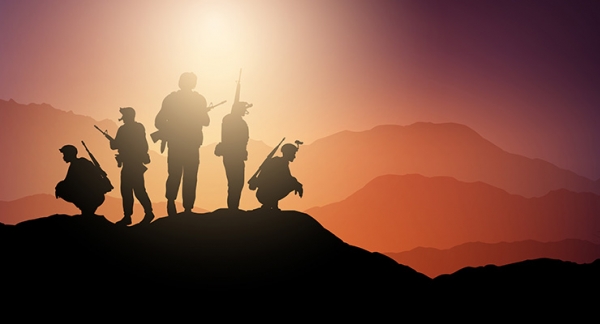Teaching the first world war

One hundred years ago, a hitherto individual by the name Gavrilo Princip, a member of Young Bosnia, set in motion a chain of events that would eventually lead to the outbreak of the first world war. It was utterly inconceivable to all that a regional conflict would take over the entire planet.
As the historian Hew Strachan concludes in his excellent history of the conflict, The First World War, the consequences of it were unfathomable, both immediate and in terms of legacy.
It would "break" the empires of Germany, Russia, Austria-Hungary and Turkey. It set in motion the Russian Revolution and, in turn, "provided the bedrock for the Soviet Union", it transformed the US' role in international politics and, for a while, "revivified" liberalism.
"On Europe's edge it provided a temporary but not a long-term solution to the ambitions of the Balkan nations," Mr Strachan explains.
"Outside Europe it laid the seeds for the conflict in the Middle East. In short it shaped not just Europe but the world in the twentieth century. It was emphatically not a war without meaning or purpose."
It remains, despite all the material published across all mediums – book, music, film, etc – a war that we are still trying to get to grips with, both in terms of its causes and its legacy. This task is continual for every generation that broaches the subject – and every generation that previously has – as, proximity influences our viewpoint.
History through all prisms
The obligation of every historian and history teacher then is to attempt to frame the discourse of the war in as objective way as possible, for every important moment in this disastrous clash of empires (and nations) to be taught through multiple prisms of thought.
Global scope
There are triggers, literal or otherwise, that hold truths about why the world went to war in 1914, but, by and large, there is no easy, universal answer. Look to the Guardian's global guide to the first world war for guidance, an interactive documentary that presents, courtesy of ten historian from ten countries, a brief and very diverse history of the war. It is a commendable effort, nuanced, and a very good introductory survey that will serve well throughout the study of the subject.
1914/2014
Needless to say, discussing the war against the backdrop of current events is essential. Conflicts this year in particular have seemed to echo, somewhat ironically, the very incidents of 1914, going to show that while technology and medicine may progress, when it comes to civilisation, humanity keeps going around in circles. A lot of new ideas can come from this.
Travel, embrace and see
Culturally speaking, at galleries and museums, the next four years are going to consistently deliver first world war themed exhibitions, shows and talks. Again, this is truly global in scale, meaning there will be plenty of opportunities for schools to deliver some of the best, most informative and immersive lessons on this subject. Some curatorial efforts are outstanding and one day-trip, for example, has the potential to transform a student's understanding.
The ubiquity of material
Likewise, though there has never been any shortage of first world war material, the one-hundred-year anniversary has nevertheless brought with it a renewed sense of scholarly vigour, and more so, operating as we do in a technologically-savvy and intuitive age, access to all sorts of media is easier and engaging. Again, endeavour to point to sources from a variety of sources.
Give it life
There are no absolute rules to teaching the first world war. An interest in the subject certainly helps, passion being a naturally captivating element that can enrich or best articulate something that might go over a student's head or present itself as being uninteresting.
They key is in the details. Make every lesson feel alive, abundant in resources, things to do and activities that provoke, challenge and intrigue your pupils. The material, the technology, the events, they are all there and information rich. What makes them standout is ultimately you and your ability to tap into them and present them in a captivating way. That's how you teach the first world war.






